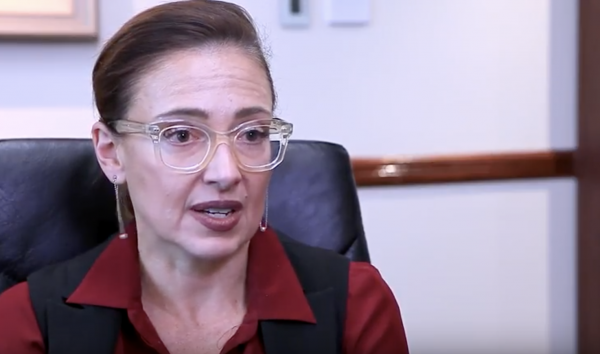"Barely a week goes by when I don't have to address some over-the-top urban myth about the private health insurance rebate," says Dr Rachel David, CEO of Private Healthcare Australia.
In the second part of an interview with DailyDispatch to mark the launch of HealthDispatch, Dr David lamented the continued attacks on the rebate, highlighting the fact the average annual income of Australians with health insurance is $50,000 or less.
"The rebate is means tested. So, it’s not going to wealthy people and it leverages a huge consumer contribution towards the cost of their own care for-non emergency surgery and other conditions like the management of chronic disease, including mental health, chemotherapy and many other serious conditions that the public hospital system has absolutely no capacity to absorb at the moment.
"Two-thirds of elective surgery takes place in the private sector, 82 per cent of day admissions for mental health and over 50 per cent of overnight admissions for mental health take place in the private sector, and close to 70 per cent of admissions for chemotherapy take place in the private sector," said Dr David.
Dr David said any decision to remove the rebate would half the participation in private health insurance.
"...people would simply go straight to the back of the waiting list in public hospitals and for some conditions we know there isn't even a waiting list, for many mental health conditions, because they're simply not treated in the public hospital system.
"So, by suggesting the rebate is a waste of money, or not a value to consumers, it really invalidates the choice many people on very low incomes have made to participate in paying for their own health care and thereby take the pressure off the public hospital system."
She continued, "Of that $5.5 to $6 billion a year, the next thing we hear a lot of is that it could just be taken away and spent on the public hospitals. But we really need to unpack is what that means. What would it be spent on?
"It's very hard to know what would happen and, in fact, there is no guarantee that if that money was taken away one extra patient would be treated in the public hospital system. So, what you do is you would immediately put six million people in the position of having to seek their care through the public hospital system. And there's no guarantee there would be capacity to treat one extra patient.
"At the moment, Australia arguably has one of the best health systems in the world and the small investment government makes in the rebate, which is under $6 billion out of a total $160 billion spent on health, I think is a great investment in keeping that high-quality system viable."
